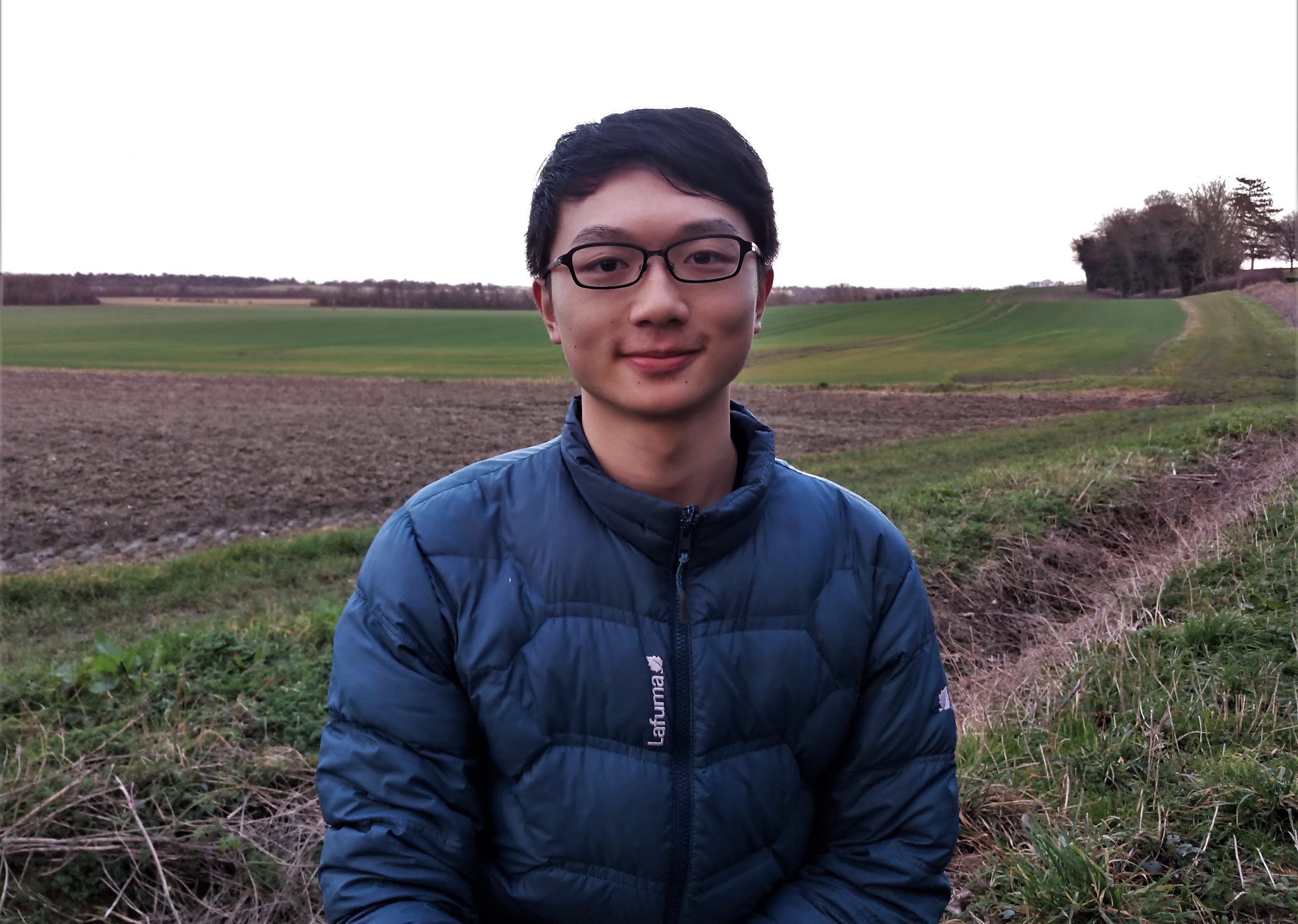
Aland Chan talks about his research into the impact of extreme weather events on Hong Kong's forests.
I hiked through the forest after the typhoon. There were many uprooted trees, but I noticed that different types of forest had different levels of damage. I want to know why.
Aland Chan
Aland Chan [2019] has been fascinated by plants since childhood, when he spent his weekends hiking in Hong Kong, taking photographs of wildlife.
His parents encouraged that passion, sending him to a school with did the International Baccalaureate and set less homework than the average school precisely so that he could develop his outside interests.
That curiosity about plants has fuelled his academic studies ever since and in the autumn, Aland will begin his PhD, using remote sensing tools to study forests at large scale. He is interested to explore the impact of climate change on forests and forest resilience against wind damage and landslide.
“Extreme weather incidents are becoming more frequent,” he says. “In Hong Kong we had one of the strongest typhoons in our history recently. I hiked through the forest after the typhoon. There were many uprooted trees, but I noticed that different types of forest had different levels of damage. I want to know why.” He says late-successional species of trees [species that persist in the forest after the forest has been initially established] in mature forests were less badly hit than urban ones and Pioneer species – hardy species which are the first to colonise previously biodiverse steady-state ecosystems.
Aland will use huge geospatial datasets obtained from satellites and aircraft to track where wind and landslides cause more severe damage and how environmental factors affect different sites’ recovery rates. His PhD will be supervised by Professor David Coomes, who also supervised his MPhil at the University of Cambridge. During his master’s Aland says he was able to gain the technical skills he needed to do analyses based on remote sensing data. “I can focus for my PhD on ecological questions,“ he says.
Hiking in Hong Kong
Aland was born and grew up in Hong Kong. He started reading books on nature at around the age of eight. His father, who has worked in a science museum and exposed Aland to science from a young age, liked to take photographs of insects and had a number of insect guides which Aland would read. He started hiking in Hong Kong’s country parks with his parent as a young child. Some 40% of Hong Kong’s territory is an area that is protected from development. Later he would go hiking with his friends and through reading books on insects he moved on to a keen interest in plants. By the time he went to secondary school he was going on hikes every weekend, taking photographs of the plants he found and, as he became more knowledgeable, identifying them.
He says he knew all the way through secondary school that he wanted a career related to plants and wildlife. He did his extended essay for IB on shrubs and how their features change with exposure to sunlight. While he was at school he also went on a trip to Ecuador with ecologists from Hong Kong to do some survey work and meet conservationists in the Amazon region.
Cambridge
So when it came to deciding what to study at university, he was sure that he wanted to study ecology. He applied to Cambridge because of its reputation for science.
In his final year he did his project on root herbivory, working within the Department of Plant Sciences. His focus was on how plant roots are eaten by beetle larvae and how that affects the growth of herbs in the UK. “Root ecology is understudied because it is difficult to do so since roots cannot be seen,” says Aland. To get around this Aland designed pots with windows in them so he could see the roots as they grew. During his undergraduate degree Aland also spent a month in Indonesia working with Operation Wallacea, quantifying carbon stocks and surveying wildlife in forests where no Westerner had stepped foot.
He is currently finishing a research-based masters in ecology at Cambridge. For this he is using remote sensors and aerial photographs to monitor and detect ash dieback in ash trees in the UK. Ash dieback is a chronic fungal disease of ash trees in Europe characterised by leaf loss and crown dieback in infected trees. It blocks the water transport systems in trees causing leaf loss, lesions in the wood and on the bark and ultimately the dieback of the crown of the tree.
The disease was first described in Poland in 1992 and has since swept westwards throughout Europe. It was first identified in Britain in 2012 and is causing a lot of concern among ecologists. Young trees are particularly vulnerable and die quickly once they succumb. Older trees can be slowly killed by a yearly cycle of infection.
One symptom is dieback of twigs and branches in the crown of mature trees, often with bushy growth further down the branches where new shoots have been produced. Aland says the sensors allow researchers to classify the tree species remotely and identify which ones are diseased based on an analysis of the aerial photos.
He says that he is very happy to have been selected to be a Gates Cambridge Scholar for his PhD. He is interested in scientific research, but also in making a difference through convincing the public and policymakers about what the scientific evidence is saying. “The criteria for Gates Cambridge fits me really well. I want to give back to and change society,” he says.

Hei Yeung (Aland) Chan
- Alumni
- Hong Kong
- 2019 PhD Plant Sciences
- Downing College
Growing up in Hong Kong, I enjoy trekking through the city’s subtropical countryside. From a young age, I developed a passion to study and protect the wildlife I encounter. I completed my undergraduate studies and started my MPhil project at the Department of Plant Sciences, University of Cambridge. At Cambridge, I realized how climate change, habitat degradation, and forest loss are not only threatening millions of species living in natural systems, but also destabilizing the environmental conditions that human civilization is built on. New technologies in remote sensing are starting to revolutionize our understanding of large scale patterns in forest ecology. During my PhD, I wish to utilize these newly available remote sensing datasets to study how forests resist and recover from extreme weather events, which are made more frequent by climate change. My hope is that such research will allow us to more efficiently manage natural systems and better control carbon emissions from tropical forests.
Previous Education
University of Cambridge Biological Science 2019
University of Cambridge Natural Sciences 2018












